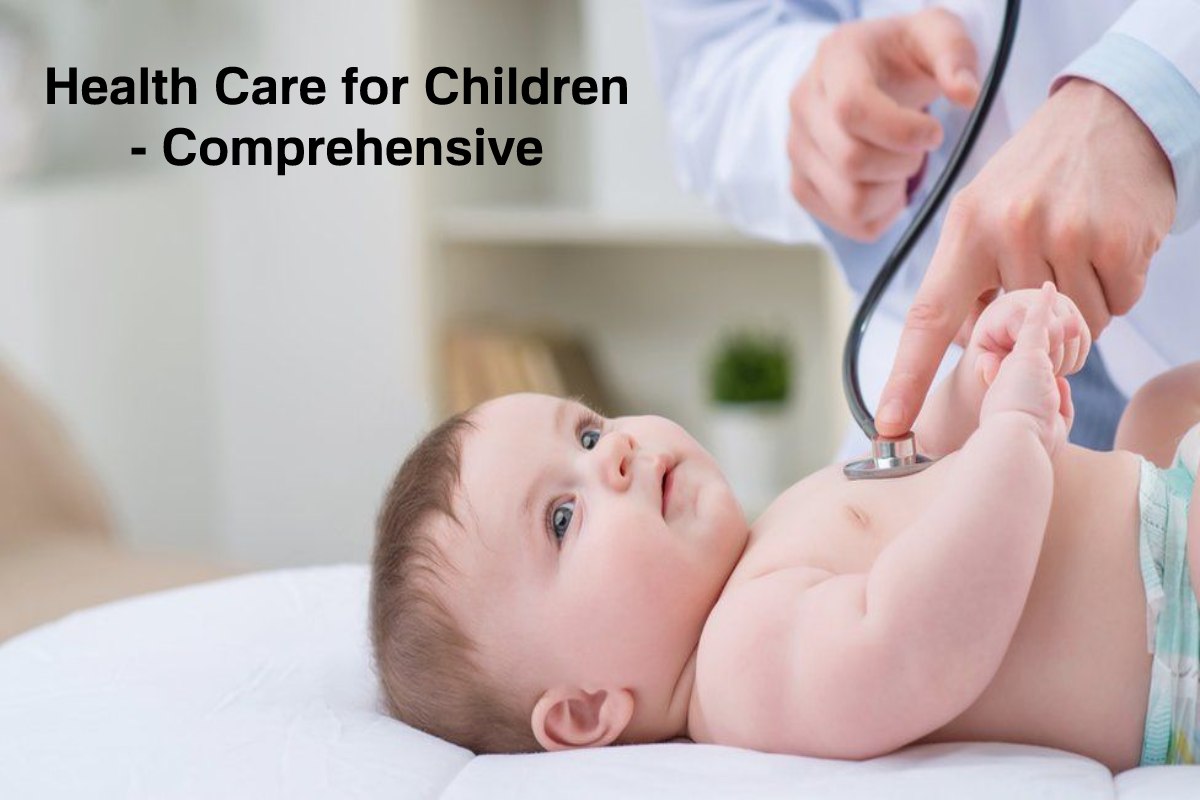Table of Contents
Is Your Child Sick?
Comprehensive Health Care for Children services include pediatricians, pediatric subspecialists, and related healthcare professionals.
If your child is not well, you must use a symptom checker to understand better what might be happening. And also, Symptom Checker gives you access to over 100 symptoms to make sure you know when to take your child to the clinic to see a doctor.
Are You Expecting?
Having a baby is one of the most rewarding experiences of your life. Besides, a team of professionals provides the quality care your child needs and the advice and guidance you want.
Further, every doctor who accepts new patients offers this service. Additionally, It allows future parents to meet their pediatrician. So, the visit includes general education about the birth of your baby, an explanation of our office policies, and a question and answers session.
4 Types of Pediatric Services – Health Care for Children
Developmental and Behavioral Pediatrics
Trained Pediatricians in developmental and behavioral pediatrics are experts in the evaluation and management of a variety of conditions:
- Autism spectrum disorder (ASD)
- Attention deficit hyperactivity disorder (ADHD)
- Developmental delay
- Anxiety and depression
- Anger management problems
- Provocative and oppositional behavior
- Tic and tourettes syndrome
- Learning difficulties and language impairment
In addition, such pediatricians will contact your child’s daycare, kindergarten, or school to ensure a comprehensive assessment and best formulate management plans to meet your child’s individual needs. And also have paramedical care on-site and networks and the interstate with tertiary hospitals and paramedics to provide the best quality care.
General Pediatrics Health Care for Children
Therefore, General pediatricians are experts in caring for children and adolescents from birth to 18 years of age with many different conditions and diseases that may include (but are not limited to):
- Acute medical conditions such as infections or asthma
- Newborn exams
- Infant feeding, growth, and sleep problems
- Allergy, eczema, asthma, and allergic rhinitis (hay fever)
- Bedwetting, incontinence (dirty or wet), fatigue, and constipation problems
- Growth and puberty problems.
- weight control
- Trouble sleeping
- Diabetes, thyroid problems, and vitamin D deficiency
- Recurring headaches, migraines, or abdominal pain
- Neurological conditions, including cerebral palsy and epilepsy
- Development and behavior conditions.
- Autism spectrum disorder (ASD)
- Attention deficit hyperactivity disorder (ADHD)
- Developmental delay
- Anxiety and depression
- Anger management problems
- Provocative and oppositional behavior
- Tic and tourettes syndrome
- Learning difficulties and language impairment
So, a general pediatrician’s goal is to work closely with your child and family, their primary care physician, your child’s educators, and allied healthcare professionals to maximize their health and well-being.
Pediatric Psychology Health Care for Children
A psychologist offers treatment for children with various difficulties, including anxiety, ASD, behavioral and emotional problems.
- Assess developmental, learning, and behavioral difficulties throughout life.
- Diagnose disabilities and disorders, such as autism spectrum disorders and intellectual disability
- Identify and use evidence-based interventions.
- Advice to individuals and groups
- Counseling and professional learning
- Assessment of developmental delay
- Assistance with eating, sleeping, or behavior problems
- Child mental health problems (for example, anxiety and attachment disorder)
- Handling a child’s difficult temperament
- Parenting issues
- Sibling rivalry within the family
- Assessment of school readiness
- Anxiety about separation or school avoidance
- Psychoeducational evaluation
- Evaluation, diagnosis, and treatment of learning difficulties and disabilities
Pediatric Speech Therapy Health Care for Children
A speech-language pathologist is a college-trained allied health professional who works with children and adults. And also, Speech-language pathologists train to evaluate, diagnose, and intervene with people with a communication disorder. Besides, Communication includes speaking, hearing, listening, understanding, social skills, reading, writing, and voice. Therefore, a communication disorder can consist of difficulties with:
- Articulation (production of the sound of speech)
- Language (receptive language: understanding instructions and meanings, and expressive vocabulary: putting words together and being understood)
- Ease (stuttering)
- Literacy (involves reading and understanding in written form)
- Social Communication (how we communicate and understand the social rules of communication that are necessary to develop a successful relationship with another person)
- Voice (using your vocal cords or larynx to produce speech)
Communication Disorders – Health Care for Children
In addition, there are many different causes of communication disorders. Besides, these causes include developmental delays, neurodevelopmental disorders such as autism, Down syndrome and cerebral palsy, stroke, brain damage, learning difficulties, intellectual disability and hearing loss, and other problems. And also, it can affect speech and language.
Further, the impact of a communication disorder can range from mild to severe. Additionally, some can last a lifetime, and others can be short-lived. Besides, Communication disorders can affect interactions at home, school, or society.
In addition, Speech and language difficulties, in particular, affect learning in school, leading to poor academic performance. Therefore, people with a communication disability may also find it difficult to express themselves and share their ideas and opinions, leading to frustration, anger, or embarrassment.
And also, a speech-language pathologist can work in various settings and uses assessment tools to diagnose each person’s specific area of difficulty, provide counseling, and develop a treatment plan that best meets their needs. So, the role of a speech therapist is also to advocate for people with a communication disorder and their families.

